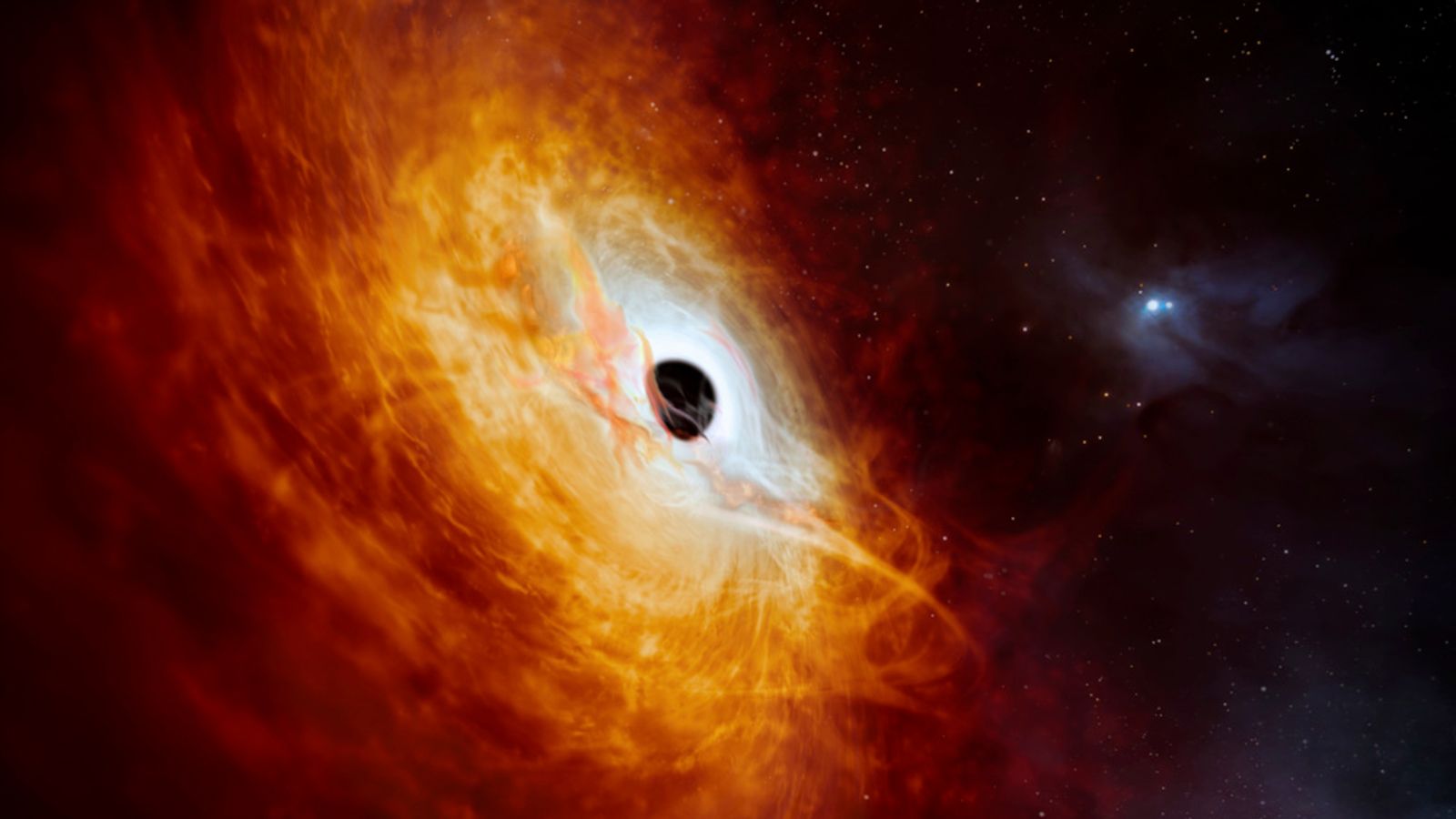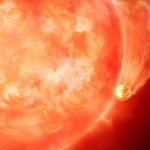A quasar 500 trillion times brighter than the sun has been discovered by astronomers who say it may be the brightest and “most violent” place in the universe.
The huge black hole powering it is said to be between 17 and 19 billion times the mass of the sun and growing at the fastest rate ever seen.
Quasars are the bright cores of ‘active galaxies’ – those that have supermassive black holes consuming huge amounts of matter.
The record-breaking quasar, discovered by an Australian-led team, is swallowing the equivalent of a sun a day as it pulls in vast amounts of gas.
The rotating disc of gas around its black hole has been likened to a cosmic hurricane – which experts say emits so much energy it’s more than 500 trillion times more luminous than the sun.
“This quasar is the most violent place that we know in the universe,” said lead author Christian Wolf, from the Australian National University.
It was thought to be a star when first spotted in 1980, but got reclassified as a quasar last year following observations in Australia and Chile’s Atacama Desert.
Out-of-control satellite hurtling towards Earth to hit atmosphere on Wednesday morning
Japan: New H3 flagship rocket reaches orbit in key test after failed debut last year
Warfare is changing: Is space the new military frontier?
Astronomers now think it’s consuming the equivalent of 370 suns a year, about one a day, making it the fastest-growing black hole to date, according to the European Southern Observatory (ESA).
The quasar is known as J0529-4351 and is 12 billion light years away (a light year is 5.8 trillion miles).
Read more from Sky News:
Out-of-control satellite to hit Earth’s atmosphere
Japan’s new flagship rocket reaches orbit
Be the first to get Breaking News
Install the Sky News app for free
“The exciting thing about this quasar is that it was hiding in plain sight and was misclassified as a star previously,” said Yale University astrophysicist Priyamvada Natarajan – who was not involved in the study.
The research is published in the journal Nature Astronomy.






















